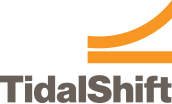LT 250 | Length: 1 day | Credits: 7 PDUs
Overview
The most effective organizations are learning organizations – settings in which individuals and teams are able to adapt to continually changing environments, act decisively while in uncharted territory, uncover opportunities where others see only chaos, and perform at their best when the stakes are highest. To meet these challenges an organization must create a culture that promotes and supports learning and coaching at all levels and in any direction. C.O.A.C.H for Peak Performance™ builds on the knowledge and experience of those who coach outstanding individuals and teams preparing for important performances or competitions. When we are focused on an important upcoming performance, our desire to learn and improve skills is at its peak. In this program, we show you how to take advantage of this readiness to create a successful coaching relationship.
Objectives & Outcomes
Participants will:
- Define the role of coaching in performance management
- Identify the competencies involved in coaching and evaluate their own levels of competence
- Practice a set of communication skills that support effective coaching
- Analyze the role that motivation plays in designing an approach to coaching
- Practice a coaching process and related activities that build toward peak performance in others
- Promote and implement a “culture of coaching” in their organizations.
Who Should Participate?
Anyone in the organization who as the responsibility for supporting others’ high performance or is willing to take it on.
Content Outline
- Introduction to key concepts and the performance coaching approach; the role of performance coaching in performance management; the role and characteristics of the best coaches; benchmark exercise.
Competencies for Effective Coaching
- Overview of the key competencies for effective performance coaching; application to the benchmark exercise; identifying needs in performance coaching; prework review; a model for developing competence
Coaching and Communication
- Presentation and skill practice of communication skills for building all coaching competencies; application of skills to realistic coaching situations; feedback and coaching on communication performance.
Performance Motivation
- Review of main motivational theories; applying motivation in performance coaching; completion of Work Challenge Assessment for self and others to determine primary intrinsic motivators.
Dealing With Readiness and Resistance
- Assessment
The Performance Coaching Process
- Introduction to managing yourself as the first step in conflict management
Creating the Coaching Culture
- Analysis of contributing factors to conflicts and paths to resolution
